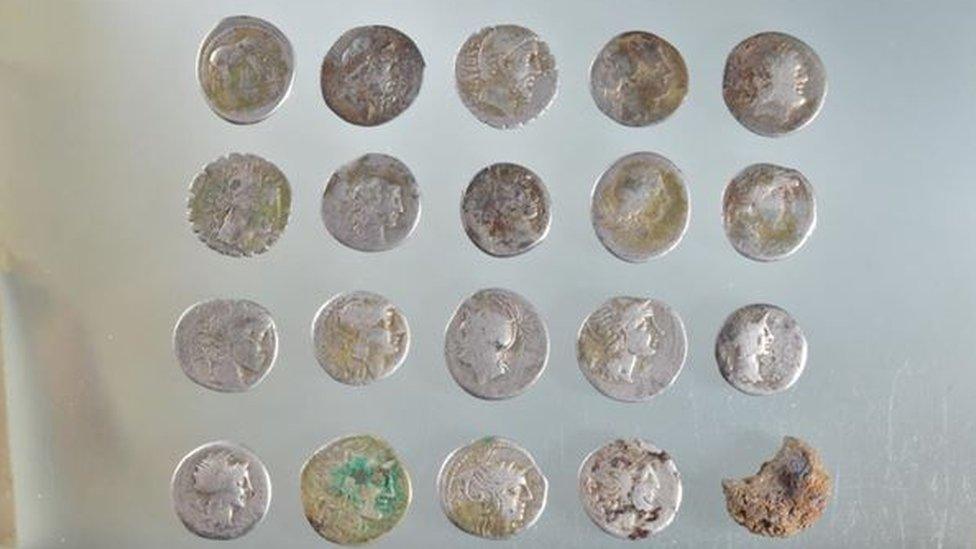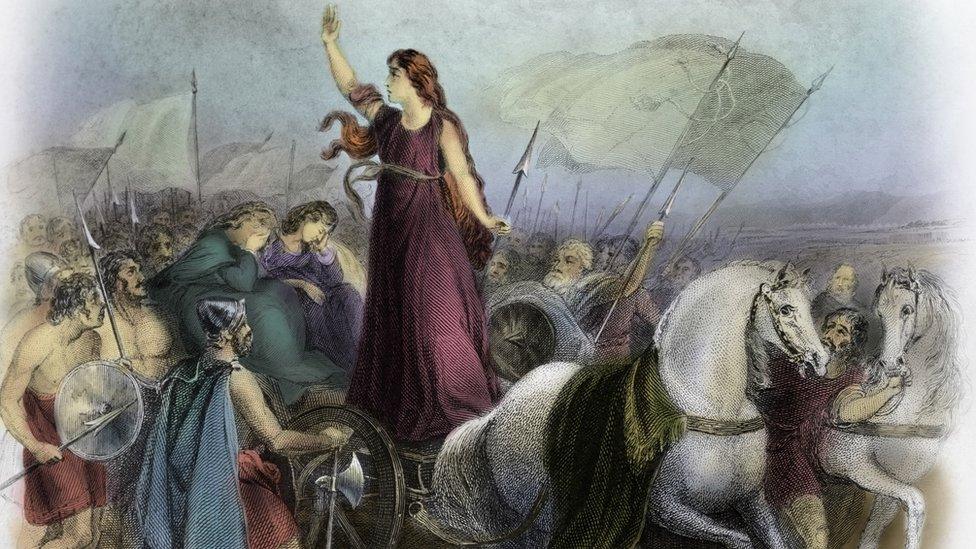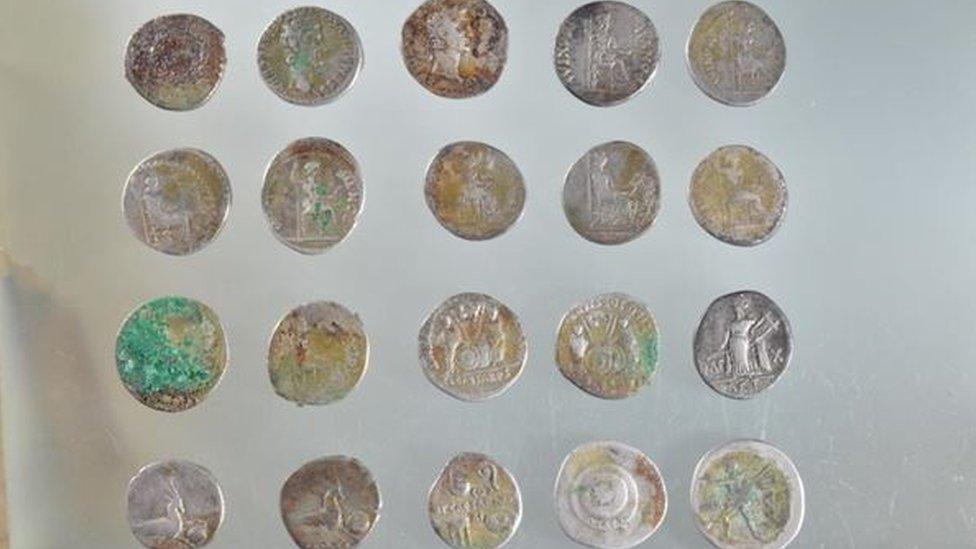Roman coin stash 'may have been linked to Boudiccan revolt'
- Published

The coins dated between 153BC and AD61
A hoard of Roman coins found in a field may have been hidden there during the Boudiccan revolt, an expert has said.
The trove of 60 denarii, dating between 153BC and AD60-61, was found in a field near Cookley, in Suffolk, by a metal detectorist.
Dr Anna Booth, who examined the find, said there "might be a link with the Boudiccan revolt" and the coins.
Queen Boudicca led the Iceni tribe against the Romans in AD61 which led to the destruction of Colchester.
Most of the coins dated from the Republic era, pre-27BC, but there were also denarii minted during the reigns of emperors Augustus, Tiberius, Caligula and Nero.

Boudicca led her Iceni tribe in a revolt against the Romans
Dr Booth said: "This hoard is interesting because the latest coin dated to the reign of Nero in AD60-61. The final coin is often an indication of when a hoard is likely to have been deposited.
"There might be a link with the Boudiccan revolt which took place in AD61 in this region."
She added: "It was quite a tumultuous time in East Anglia.
"There does seem to be a slight increase in hoarding in this period. It is a stretch of the imagination, we are not 100% sure, but in this region it is tempting to say this is because of what was happening in this period."
Thousands died during Boudicca's revolt across East Anglia after she united local tribes against the Roman rulers.
Colchester, then the capital of Roman Britain, London and St Albans were all destroyed before she was defeated.

The coins may have been buried to hide them during the Boudiccan revolt, an expert said
The find, from August 2018, was made up of 58 solid silver coins, two of which were silver-plated copies.
Senior coroner Nigel Parsley declared it to be treasure at an inquest in Ipswich.

What is treasure?
Under the Treasure Act 1996, external, finders of potential treasure in England, Wales and Northern Ireland are legally obliged to notify their local coroner
If the find is declared treasure, the finder must offer to sell it to a museum at a price set by the British Museum's Treasure Valuation Committee
A reward is then offered to the finders and relevant parties